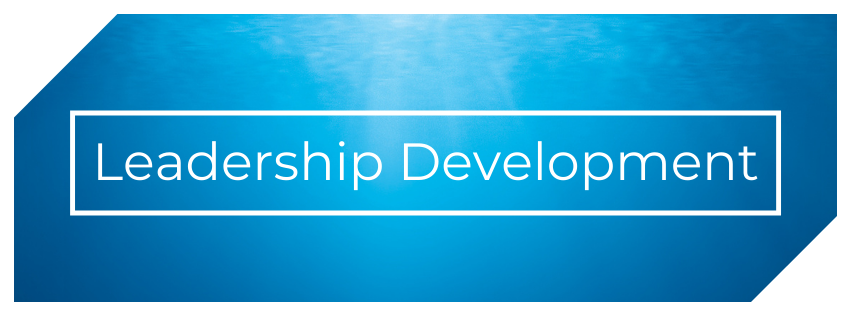
Leadership Development at NSU
The best leaders are focused on helping their team achieve a shared vision. At Nova Southeastern University we embrace Others Centered Leadership, through feedback, recognition, inclusion, and development of the potential of our Students, Faculty, and Staff.
If you are looking to take your team further, conduct teambuilding, or departmental strategic planning please contact us for customized Learning & Organizational Development consultative services, subject to availability.
Key Offerings:
-
- Organizational Health 2-Day Leadership Retreat (Based on the work of Patrick Lencioni)
- DISC Personality/Communication Styles for Leaders/Teams
- Find Your WHY Workshop for Departments (Based on the work of Simon Sinek)
- Teambuilding/ Team Dynamics
- Psychological Safety/Emotional Intelligence
- ...and customized solutions to meet your departmental need.
Leadership Development Opportunities
Featured Topic: Values & Leadership
We are many individuals, but One NSU. Central to any organization are its values. NSU is no different. Beyond our 8 Core Values, each leader carries values of their own. Leadership values are fundamental principles that guide a leader's behavior and decision-making process, influencing the culture and performance of their department, center, or college. In today's complex and dynamic environment, leaders who explicitly understand and communicate their values can inspire trust, drive engagement, and foster a sense of purpose among their teams. Particularly within higher education, leadership values not only shape administrative success but also impact educational outcomes.
"The function of leadership is to produce more leaders, not more followers."
- Ralph Nader
Why We Need Core Values - from James Franklin
Franklin discusses how core values guide behavior, decision-making, and leadership. He shares personal anecdotes and experiences from his career, illustrating how values like integrity, respect, and responsibility have shaped his actions and outcomes.
Extra Credit: How do my core values influence my decision-making and leadership style, and how can I make sure they "show up" consistently reflected in my actions?
Dare to Lead by Brene Brown
Brené Brown's book offers an insightful exploration into the power of vulnerability in leadership. Brown argues that leadership is less about titles and more about recognizing potential in others and daring to develop that potential. This book is particularly useful for leaders in higher education looking to foster a culture of openness and innovation.
My key take away...Define Values: The book highlights the importance of identifying and living according to clear values. Brown provides a framework for leaders to discover their core values and integrate them into their leadership style and organizational practices.
Beyond this point, I recommend this book as a great read for any leader.
Did you know you can find a copy of the book at the Alvin Sherman Library? Check it out here - "Dare to Lead" by Brené Brown - Find at the Alvin Sherman Library HERE
Extra Credit: Reflect on a recent leadership challenge you faced. How might intentionally embracing personal values have changed the outcome?
Podcast: How Core Values Drive Your Purpose
In a world full of choices, deciding what matters most can be tricky. We know extraordinary success is about leaning into our priorities and avoiding distractions—but how do we know when to say yes and when to say no?
Many people are searching for purpose. They want clarity on That ONE Thing so that they can make better decisions and have a direction for their life. But the truth is that clarifying your purpose is not always easy. Tapping into Your ONE Thing is a journey, not a lightning bolt.
LINK to the Episode: https://podcasts.apple.com/us/podcast/how-core-values-drive-your-purpose/id1191482456?i=1000504965061
Extra Credit: After listening to the episode about core values in leadership, identify two core values that resonate most with you. How do these values currently manifest in your leadership style, and what practical steps can you take to more fully integrate them into your daily leadership practices here at NSU?
Quote to Ponder
"Your beliefs become your thoughts, your thoughts become your words, your words become your actions, your actions become your habits, your habits become your values, your values become your destiny."
- Mahatma Gandhi


